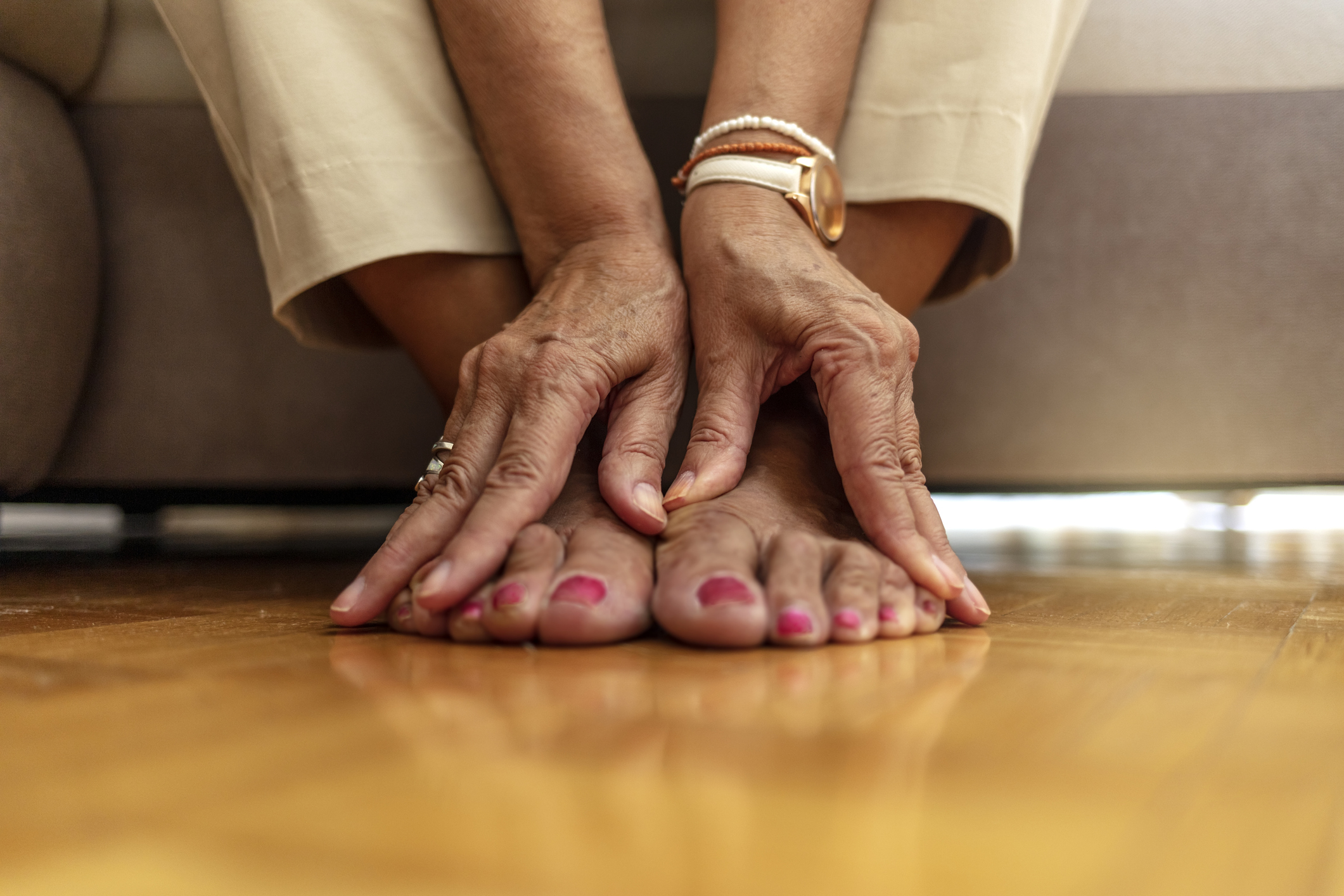
Prioritize healthier feet for seniors as part of an overall focus on wellness.
It is difficult to put your best foot forward when pain wracks each step. Foot problems are common when we grow older, which is understandable; there are so many intricate bones that carry our bodies’ weight. In addition to that, because they are far away from the heart, our feet might not be getting as much oxygen-rich blood as needed to stay healthy – particularly if a medical condition like diabetes limits blood flow to the feet.
However, many seniors choose to simply grin (or grit their teeth) and bear it, as opposed to seeking help for painful feet. This could result in not only growing discomfort, but compromised mobility and balance issues. Problems with the feet can also be a warning sign for other health conditions that need diagnosis and treatment.
Watch Out for These Everyday Senior Foot Issues
Foot pain can result from:
- Dried-out skin. During these cold winter months, dry skin is normal. On the feet, it can cause cracks which are not just painful, but can lead to infection.
- Calluses and corns. These thick patches of dead skin on the feet usually arise from the friction from improperly fit shoes.
- Bunions. As opposed to calluses and corns, bunions are the result of changes to bone structure. They can be extremely painful, frequently developing on the exterior part of the big toe joint.
- Hammertoes. Rather than all of the toes lying flat, hammertoes are misshapen and point up. You might discover a corn in conjunction with the deformed toe.
- Arthritis. Arthritis can hit any of our joints, even the feet, resulting in both pain and mobility issues.
- Plantar fasciitis. Plantar fasciitis is brought on by bony growths formed when a ligament on the heel becomes swollen. Walking as well as standing can be very painful with this condition.
- Ingrown toenails. Toenails that grow at a different angle than normal can become ingrown in the flesh of the toe, often requiring a surgical procedure to remove.
- Fungal infections. Damp feet make an ideal breeding ground for fungus, which could occur between the toes.
Dr. Said Atway, clinical professor of podiatry at The Ohio State University Wexner Medical Center, treats seniors suffering from these kinds of issues on both ends of the spectrum: either highly active and developing problems from excessive use, as well as those with an inactive lifestyle experiencing limited circulation to the feet and poor general health. He highlights the significance of proper shoes for seniors, who should keep from going barefoot or wearing shoes without proper support, such as flip flops.
To find the best-fitting, most comfortable shoes, he recommends:
- Shopping for shoes later in the day, as gravity causes the feet to expand a little throughout the day
- Testing out shoes by walking around in them for at least 20 minutes; giving them a test run on a carpeted area at home should prevent any wear on the bottoms of the shoes, so they can be returned if they do not fit right
- Seeking the recommendation of a podiatrist regarding the best type of shoe for a senior’s specific concerns
How else can you promote healthier feet for seniors? Keeping the feet clean, moisturized, and dry, and performing daily inspections to check for problems, is advised for all older people. An annual visit to the podiatrist can also help prevent problems.
Morning Glory Home Care, award-winning provider of elder care in Edwardsville, IL and surrounding areas, is here to help older adults kick up their heels in many ways: ensuring good foot health, providing transportation to look for footwear or to the podiatrist, taking walks together to improve blood flow, and more! Reach out to us at 618-667-8400 for a no-cost in-home assessment today.
